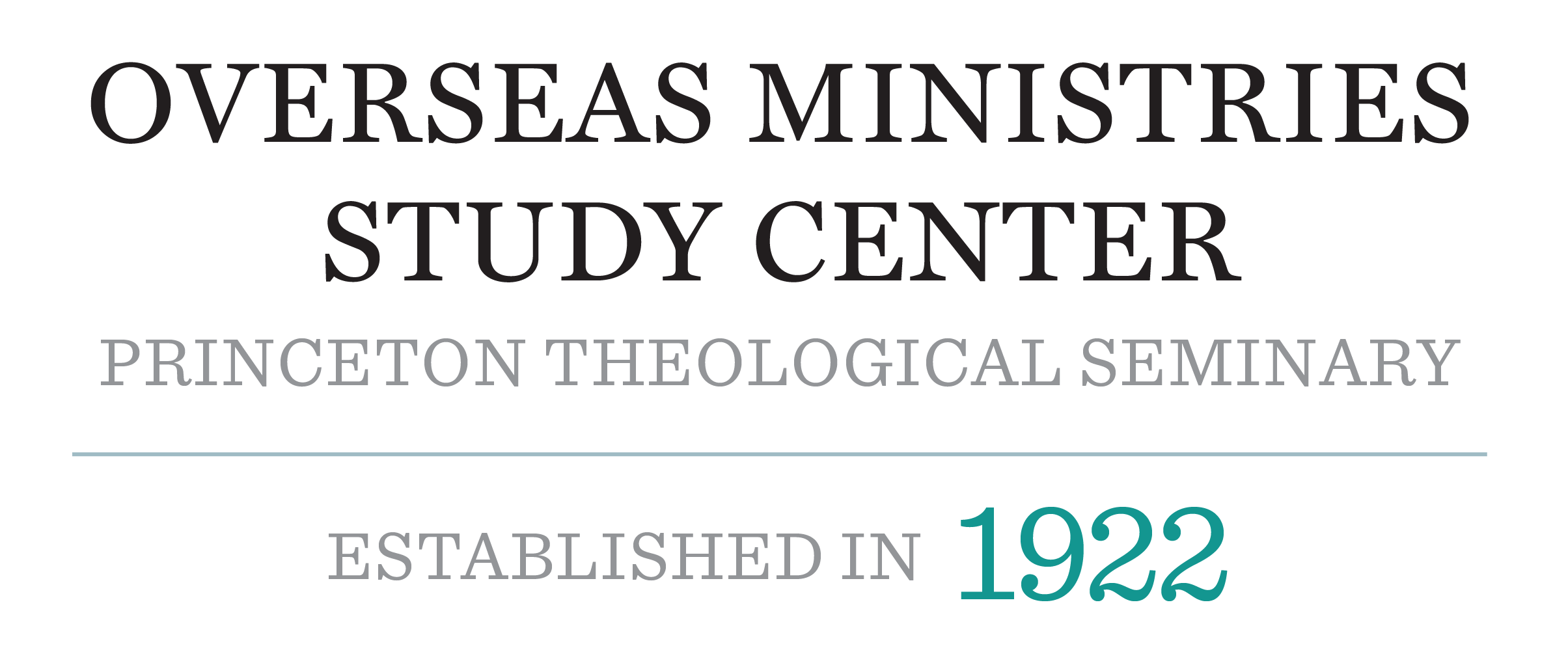
On March 3, I embarked on my first international trip on behalf of OMSC. With invaluable practical support from the Korean Research Institute for Mission’s Dr. Steve Moon (photo at right) and Chun Lee, his colleague and recent OMSC alumnus, a very busy agenda provided many chances to speak with alumni, missionaries, church leaders, seminary administrators and professors, and students. Starting and ending in Seoul, I also visited Cheonan, Gwangju, and Daejeon over the next 18 days, preaching, lecturing, sharing about OMSC’s work, and getting to know colleagues in God’s mission at KRIM, Sarang Church, Yonsei University Church and Chapel, Presbyterian University and Theological Seminary, Hoseo University and Theological Seminary, Honam University and Theological Seminary, First Presbyterian Church Daejeon, Torch Trinity University, Jiguchon Church, and Asian Mission. Everywhere I went, I received a warm and gracious welcome, meeting old friends of OMSC and many new ones.

In Seoul, I visited the Yanghwajin Foreign Missionary Cemetery and adjacent 100th Anniversary Memorial Church, whose volunteers maintain the cemetery and serve as tour guides for visitors from all over Korea and the world. I was moved to stand at the grave of Dr. Horace Underwood III, who was a great personal encouragement to me after Carol and I were appointed by the PC (USA) in 1988 as Mission Co-workers to Japan. Also, the grave of Gaichi Soda (1867–1962), a Japanese man who had a ministry for Korean orphans, is a powerful symbol of hope for peace and reconciliation between neighboring countries who share a troubled history. In Gwangju, colleagues from Honam Seminary took me on a sobering and painful visit to the National Cemetery (photo at left), honoring the hundreds of mostly young students who were killed by S. Korea’s military government during the uprising of May 18–27, 1980, evidently with tacit support from the U.S. government.
In Daejeon, I was asked to speak to mission agency leaders, pastors, and missionaries on “Retired Missionaries and the Church,” because about one-third of the 21,000 Korean missionaries serving today will be retiring by 2020! It was very clear from the reaction to my talk that churches and mission agencies have not planned to provide for these retirees.
One theme that kept coming up in conversations was the sense of feeling physically, emotionally, and spiritually depleted or burnt out. This came as something of a surprise, given the reputation of the Korean churches for their vitality. One seminary professor told me that his students send him messages at all hours of the night, often interrupting his and his wife’s sleep. When I suggested he turn off his phone, he said he would rather respond than deal with the wrath of young students who expect an immediate answer.
The day before leaving Seoul, I was interviewed by the Kukmin Daily, a leading newspaper owned by the Yoido Full Gospel Church, the largest church in the world. The senior reporter, to whom I was introduced by current OMSC residents Mi Ok Kim and Seong Il Lee, asked me what I had learned from my trip and what I would like to share with Korean church leaders, and I said without hesitation, “Christians are human beings who need Sabbath. We need to honor our limitations as creatures of God and recognize that we cannot do everything.”
On the final leg of my journey, I stopped off in Japan for a week. In Tokyo, I met with Rev. Hikari Kokai-Chang of the Wesley Foundation to discuss ways we might partner together in God’s mission. The next day, former OMSC Artist-in-Residence Soichi Watanabe, his wife, Nao, and their daughter, Manna, warmly welcomed me to their home where we shared a lovely meal and several hours of conversation. Then I went to Kobe where I met up with some of my former students at the Tokyo Union Theological Seminary and, on the final weekend of the trip, had the opportunity to meet with church members, preach, and lecture at a celebration honoring Ichibaku Church’s 70th anniversary. Ichibaku was founded by Kagawa Toyohiko, the great evangelist and social reformer I have been researching for several years.
After the trip, I pondered some tough questions. Does the immediacy of digital links strengthen or weaken the ties that bind us? If our technologies make us feel depleted and if we lose touch with loved ones and ourselves, how will this effect our relation to God and our effectiveness as Christ’s witnesses? The trip and my subsequent reflections reconfirmed OMSC’s enduring calling and relevance and strengthened my resolve to do everything I can to build on the great legacy of this ministry while seeking additional supporters who will, with God’s help, enable us to continue to thrive into our second century (2022–).
In such a time as this, missionaries, church leaders, and research scholars from every nation and church tradition still need a place like OMSC, a unique international community where “everyone is received as Christ” (Matthew 25:35 and Rule of St. Benedict 53:1), and where cross-cultural workers find spiritual, physical, intellectual, and professional renewal. Please
join us as we engage in mission with the world Christian community by becoming a regular contributor yourself, and please ask your congregation to include OMSC in your annual giving. You may send a check or give securely online.
With thanks and blessings,
Tom Hastings




